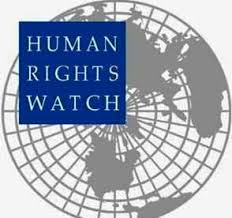Russia Names ‘Color Revolutions’, Foreign NGOs as Security Threats
Russia's new national security policy also signals Russia will play a more permanent role in the settlement of conflicts in the international arena

Originally Appeared at German Economic News. Translated from the German by Werner Schrimpf
Russia just issued its revised national security document which names so-called color revolutions as a potential high risk to the country. The strategy document is a reaction to the Ukraine coup that was masterminded by the Western alliance, and the military threat from NATO member states following the coup.
Russia sees a threat to its security caused by activities from foreign parties, organizations, and NGOs. These groups are quite active in former Eastern bloc states and intend to conduct so-called color revolutions – that means to agitate and provoke an elected government until it can be overthrown. Despite the argumentation of U.S. news agency Reuters, the new doctrine is not directed in any way against the U.S. — at least according to the Russian news agency, TASS. According to TASS, the new strategy document identifies “radical social groups which use nationalist and religious extremist ideologies, foreign and international NGOs, and also private citizens who work to undermine Russia’s territorial integrity.” Those movements would intend to destroy Russia’s traditional spiritual and moral values. Reuters wording [of the headline] “Russia names United States among threats in new Russian security strategy” could be seen as a — possibly unintended — interpretation from Reuters that the US could be behind such color revolutions.
Reuters and TASS are essentially reporting the same thing: a newly released appraisal signed by President Putin, confirming a more prominent role of Russia in the settlement of global problems and international conflicts. Russia’s independent national and international proceedings provoked counter actions by the U.S. and its allies who intend to conserve their global and full spectrum dominance. These various counter actions are increasing the pressure on Russia in political, economic, and military terms. The new strategy document replaces a former version from 2009 which did not yet mention NATO and the U.S. as a potential threat.
The reasons behind the revised Russian strategy document are the events and the coup d’etat which took place in the Ukraine in 2014. The U.S. and the EU had masterminded an anti-constitutional overthrow of the legally elected government which ended in a deep disruption within the Ukraine population and a subsequent military conflict. Steady NATO encroachment on Russia’s borders represents another threat to Russia.
For the time being, Western states are denying any involvement in the coup despite the fact that recorded telephone calls from U.S. special envoy, Victoria Nuland, clearly proving that she was promoting and pushing today’s premier minister Arseni “Jaz” Jazenjuk who took over the legally elected former president Janukowytsch. A current research analysis from Ottawa University, whose conclusions were based on the manifest content of videos and media reports, confirms Moscow’s point of view of the Maidan Massacre. The analysis from Ottawa University demonstrates that snipers who were simultaneously shooting at protesters and police forces had not been hired by the government but by Western opposition parties and groups in order to create turmoil and to overthrow the legal government.
The Russian document comes rather late which could be an indication that Putin had initially hoped that relations with the West might improve. This assumption was confirmed by former U.S. foreign minister Henry Kissinger some weeks ago, who stated he did not receive any indication during his talks with President Putin of a new Cold War being revived.
But on the other hand, NATO as well as Germany have modified their military doctrines in the meantime, and both parties are calling Russia a new enemy. An appropriate response from Russia is actually overdue.
Syria is not mentioned in the new strategy document. Since the 30th of September 2015, Russia has been conducting air strikes against extremist terror groups in Syria in coordination with the U.S. Basically, Putin and Obama have agreed to a common approach in Syria.

